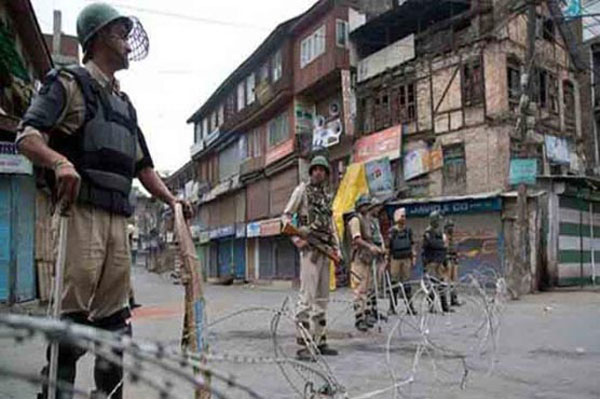
On August 5, 2019, the special constitutional status of the region was terminated without any consultation
New York … News Time
Two UN experts have expressed concern over India’s decision to end the sovereignty of occupied Jammu and Kashmir and introduce laws that exclude other minorities, including Muslims, from the political process. According to a report by Reuter’s news agency, UN Special Envoy for Minority Affairs Fernand de Varennes and Special Representative for Freedom of Religion or Belief Ahmed Shaheed sent diplomats from about two dozen countries to Jammu. The statement was issued after a two-day visit to Kashmir. UN experts said the state of Jammu and Kashmir was created on the guarantee of special sovereignty where all races, languages and religious identities would be respected and was the only Muslim-majority state in India. He said that India abolished the special constitutional status of the region on August 5, 2019 without any consultation and in May 2020, the so-called domicile law was introduced, which ended the protection given to the occupied territory. He said the change in land laws has further reduced the protection afforded to the region.
UN experts say the removal of direct government domination and sovereignty by the New Delhi government means that the people of occupied Jammu and Kashmir will not have their own government and will have to legislate to protect their rights have lost the right to amend laws. The statement said that granting domicile to persons belonging to states other than Occupied Jammu and Kashmir has raised concerns of geographical change on the basis of language, religion and ethnicity. He said that this legal change would pave the way for people from outside to come and settle in the former state of Jammu and Kashmir, which would affect the geographical location of the region and the activities of minorities under their rights. UN experts called on the Indian government to ensure the economic, social and cultural rights of the people of the Occupied Territories so that they can express their political views and play an effective role in matters affecting them.
India’s criticism of UN experts:
India, on the other hand, responded to UN experts’ concerns about constitutional change in occupied Jammu and Kashmir by saying that the experts were not neutral. Indian Foreign Minister Anurag Srivastava said that occupied Jammu and Kashmir is a core part of India and the changes in this regard are related to Parliament. He said that one of the changes in the law has been implemented all over India which will also apply to the people of occupied Jammu and Kashmir, which has allowed them equal rights with other parts of India. A statement from the Indian Foreign Ministry said that the statement by the special envoys called into question the principle of impartiality in the powers vested in the Human Rights Council. Anurag Srivastava said the experts issued the statement at a time when India was hosting a delegation of foreign diplomats in occupied Jammu and Kashmir with the aim of briefing diplomats on the current situation in the occupied valley. He said that the experts released their false news to the media without knowing the position of India and the press coincidence was given on the occasion of the visit of the diplomats.



